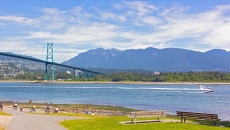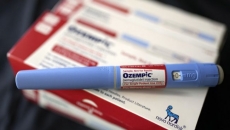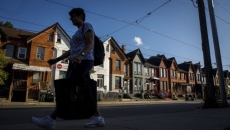In a world of uncertainty, there is one critical mission the North American Aerospace Defence Command can count on every year: tracking Santa Claus.
On Sunday, millions of people will log onto the specialized website and social media channels that depict the jolly old elf's magical journey as he and his reindeer visit children around the world.
More than 60 years after it began as a telephone line, which people can still call for an update on the gift-bearer's location, the Santa tracker is a beloved holiday tradition and a powerful public-relations opportunity for the binational agency dedicated to defending North American airspace.
Informing the public about Norad's mission the rest of the year has been a priority for commander Gen. Glen VanHerck, and in that regard, the dramatic start to 2023 came with an unexpected opportunity.
On Jan. 27, Norad learned that a high-altitude surveillance balloon from China was heading toward North America. It was detected entering Alaskan airspace the next day and tracked as it passed over Canada on Jan. 30 and 31.
Norad quietly collected data on the balloon until U.S. fighter jets shot it down off the coast of South Carolina on Feb. 4, three days after the public first learned of its existence. American jets took down three more unidentified objects over the next several weeks, making international headlines.
"It raised the awareness of Norad's mission," VanHerck said in a recent interview from Norad headquarters in Colorado Springs, Colo.
"It raised the awareness of the domain awareness gaps. It raised the awareness that we need to share and collaborate globally on potential threats approaching North America."
Those gaps included the technological — a lack of long-range radar in the Far North — and the human.
"The (intelligence) community knew it was there," he said. "One of my fellow combatant commanders knew it was there, but didn't pass me the information until the 27th of January."
VanHerck refused to say which commander knew about the balloon last January, but said, "I don't think that would happen again."
Norad's internal processes and procedures have not changed since the balloon incident, VanHerck said. As far as he's concerned, things went as they should have once the potential threat was detected.
Still, he has a wish list for the agency that Santa Claus is not likely to deliver this year.
"I lack infrastructure to operate from, I lack access to forces that are organized, trained, equipped and ready to execute the mission. And that's not only in Canada, that's in the United States," he said.
During President Joe Biden's visit to Ottawa last March, he and Prime Minister Justin Trudeau announced that an Arctic over-the-horizon radar system is expected to be up and running in 2028.
That's part of Canada's plan to spend $38.6 billion on Norad modernization over 20 years, announced in 2022.
VanHerck won't be in command when the new radar system comes online. The Biden administration named his successor, Lt.-Gen. Gregory Guillot, back in May. The U.S. Senate confirmed his nomination on Tuesday after the process had been stalled for months.
Guillot made headlines during his Senate confirmation hearings in July, when he pledged to have tough conversations with his Canadian counterparts about what one senator called insufficient military spending.
VanHerck said he has had those "frank conversations" with the Canadian defence chief, Gen. Wayne Eyre, and defence ministers during his time in Colorado Springs.
"I would tell you that I don't think achieving a specific percentage of GDP or anything is a marker that necessarily means we're doing the right thing," he said.
"I think we need to look at the threat … we need to look at our national security and we need to fund based on that."
Norad also needs clear policy direction from both governments, he said. Canada's defence policy "Strong, Secure, Engaged" dates to 2017 and an update that was set to be released in the fall of 2022 has not yet materialized.
VanHerck said he'd like to see that "sooner than later."
In the meantime, he's been asking each country to produce a list of critical infrastructure that needs to be protected so Norad can prioritize its resources. It took around two years of prodding to get the Biden administration to provide information about critical defence infrastructure alone.
"We're too slow. We're not agile enough in policy decisions and modernization and acquisitions," he said.
"I'll leave very proud of what the members of Norad and United States Northern Command have been able to accomplish, but still disappointed that we're not going fast enough."






